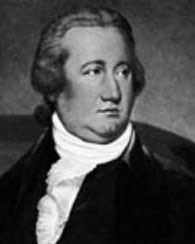
Lindenmuller v. The People, 1860 Supreme Court of New York this court ruled that while Blue Laws could be considered a civil prerogative of the State to provide a day of rest for all people, it further explained that even if they were adjudged to be a specific legislation of Christianity, that this would be permissible since Christianity was part of the common law: It would be strange that a people Christian in doctrine and worship, many of whom or whose forefathers had sought these shores for the privilege of worshipping God in simplicity and purity of faith, and who regarded religion as the basis of their civil liberty and the foundation of their rights, should, in their zeal to secure to all the freedom of conscience which they valued so highly, solemnly repudiate and put beyond the pale of the law the religion which was dear to them as life and dethrone the God who they openly and avowedly professed to believe had been their protector and guide as a people.
The court further explained that maintaining an official respect for Christianity did not infringe upon the free exercise of religion for others; instead, it provided an umbrella of protection: Religious tolerance is entirely consistent with a recognized religion. Christianity may be conceded to be established religion to the qualified extent mentioned, while perfect civil and political equality with freedom of conscience and religious preference is secured to individuals of every other creed and profession and every man is left free to worship God according to the dictates of his conscience, or not to worship him at all, as he pleases.
Compulsory worship of God in any form is prohibited, and every man’s opinion on matters of religion, as in other matters, is beyond the reach of the law. No man can be compelled to perform any act as a duty to God; but this liberty of conscience in matters of faith and practice is entirely consistent with the existence, in fact, of the Christian religion. All agreed that the Christian religion was engrafted upon the law and entitled to protection as the basis of our morals and the strength of our government.
Shover v. State, 1850 Supreme Court of Arkansas This court accepted the fact that the establishment of Sunday laws was within the legitimate legislative power of the State, regardless of whether such laws were religious in nature. However, it did not hesitate to expound upon the important relationship between Christianity and the law: The Christian religion is recognized as constituting a part and parcel of the common law and as such, all of the institutions growing out of it, or, in any way connected with it, in case they shall not be found to interfere with the rights of conscience, are entitled to the most profound respect and can rightfully claim the protection of the law-making power of the State.

